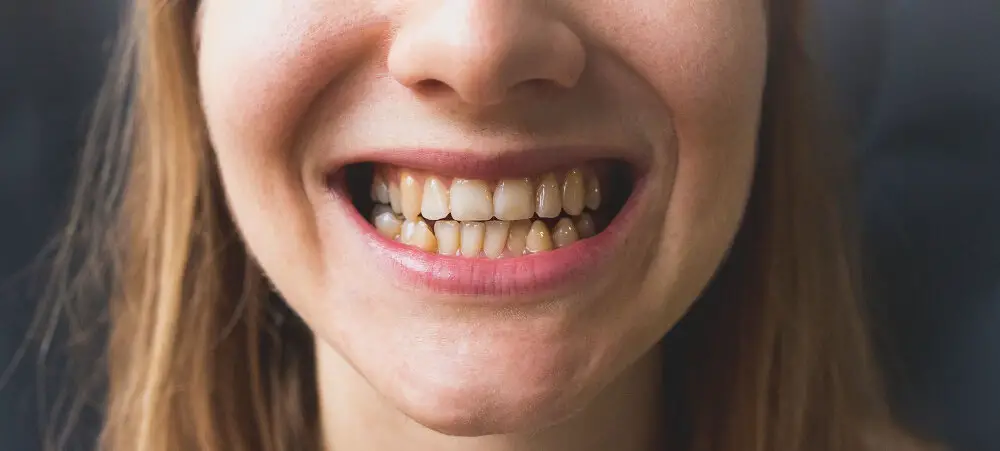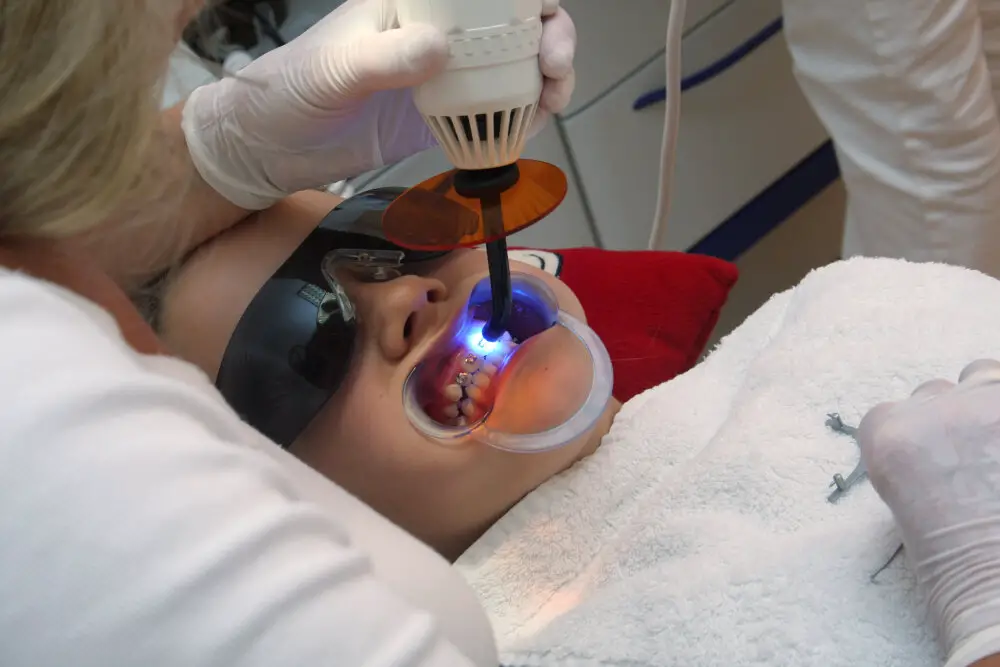Dog Dental Care: Understanding the Costs of Tooth Extraction for Your Furry Friend

As a pet owner, it is your responsibility to ensure that your furry friend is healthy and happy. One of the most overlooked aspects of pet care is dental hygiene. While it is easy to forget about your dog’s teeth, it is important to remember that poor dental health can lead to a host of health problems. Unfortunately, many pet owners fail to appreciate the importance of dental care, and this can lead to costly dental procedures down the line. Tooth extraction is one such procedure that can be expensive and can put a significant strain on your wallet. In this article, we will discuss the costs associated with tooth extraction for dogs and how you can prevent the need for this procedure. Tooth extraction is a common dental procedure that involves removing a tooth from the socket. This is usually done when a tooth is damaged beyond repair due to decay, trauma or disease. While some pet owners may think of tooth extraction as a minor procedure, it can actually be quite costly. The cost of tooth extraction varies depending on a number of factors, including the location of the tooth, the severity of the damage, and the size of your dog. In addition to the cost of the procedure itself, there may also be additional costs associated with anesthesia, X-rays, and medication. It is important to understand the costs associated with tooth extraction so that you can budget accordingly and make informed decisions about your pet’s dental care.
Dental care is an essential aspect of a dog’s overall health and well-being. Neglecting dental hygiene can lead to a buildup of plaque and tartar, which can cause bad breath, gum disease, and tooth decay. These dental problems can be painful for the dog and even lead to more severe health issues, such as heart disease and kidney disease. Regular dental cleanings and check-ups can prevent these problems from occurring and ensure that your furry friend’s teeth and gums remain healthy. Additionally, proper dental care can save pet owners from costly tooth extraction procedures, making it not just important for the dog’s health but also for the owner’s wallet.
Tooth extraction in dogs may be necessary for a variety of reasons. One of the most common reasons is severe tooth decay or damage that cannot be repaired through other means such as fillings or root canals. Other reasons may include advanced periodontal disease, which can cause pain, inflammation, and infection in the mouth. Additionally, impacted teeth or overcrowding can also be reasons for tooth extraction. It is important for dog owners to monitor their pet’s dental health regularly and seek veterinary care if they notice any signs of tooth decay or other oral health issues to prevent the need for tooth extraction.
What is tooth extraction for dogs?

Tooth extraction for dogs is a dental procedure that involves the removal of one or more teeth from a dog’s mouth. This procedure is usually necessary when a dog has a severe dental problem that cannot be treated through other means, such as a root canal or filling. Common reasons for tooth extraction in dogs include severe tooth decay, gum disease, and injury to the tooth or surrounding area. If left untreated, these dental problems can cause pain, infection, and even more serious health issues. While tooth extraction for dogs may sound like a daunting and expensive procedure, it can actually be a necessary investment in your furry friend’s health and well-being. In addition to relieving pain and preventing infection, tooth extraction can also improve your dog’s overall quality of life by making it easier for them to eat, play, and enjoy their daily activities. However, it’s important to understand the costs associated with this procedure and to work with a qualified veterinarian to develop a dental care plan that meets your dog’s needs and fits within your budget. By staying proactive about your dog’s dental health and addressing any issues early on, you can help ensure that they stay happy and healthy for years to come.
Tooth extraction for dogs is a process that involves the removal of a damaged or infected tooth from a dog’s mouth. The procedure is usually performed by a licensed veterinarian, who will first examine the dog’s mouth to determine the extent of the damage or infection. The veterinarian will then administer anesthesia to the dog to ensure that it remains still and comfortable during the procedure. Once the dog is sedated, the veterinarian will use specialized tools to extract the tooth from its socket. After the tooth has been removed, the veterinarian will clean the area to prevent infection and provide pain medication to help manage any discomfort experienced by the dog during the healing process. Overall, tooth extraction for dogs is a routine procedure that can help improve their overall dental health and prevent future complications.
There are several reasons why a dog may need a tooth extracted. One of the most common reasons is dental disease, which is caused by the buildup of plaque and tartar on the teeth, leading to gum inflammation, tooth decay, and even tooth loss. In some cases, a dog may also suffer from a broken or fractured tooth, which can be very painful and increase the risk of infection. Additionally, dogs may develop tumors or cysts in their mouth, which can also require the removal of one or more teeth. Regardless of the underlying cause, it is important for pet owners to prioritize their dog’s dental health and seek professional care when necessary to avoid costly and potentially dangerous complications.
What are the costs associated with tooth extraction?

Tooth extraction for dogs can be a costly procedure. The cost will depend on various factors such as the type of anesthesia used, the number of teeth extracted, the complexity of the procedure, and the location of the veterinary clinic. Generally, the cost of tooth extraction can range from $300 to $800 per tooth. This may seem like a steep price, but it is essential to consider the long-term benefits of the procedure. Tooth extraction can prevent the spread of infection and alleviate pain, which can improve the overall health and well-being of your furry friend. In addition to the cost of the procedure, there may be additional charges for pre-surgical blood work, pain medication, antibiotics, and follow-up appointments. It is important to discuss these costs with your veterinarian and ask for a detailed breakdown of the fees. Some veterinary clinics may offer payment plans or financing options to help make the cost more affordable. It is crucial to prioritize your dog’s dental health and not let cost deter you from seeking necessary treatment. Regular dental check-ups and cleanings can help prevent the need for tooth extraction and save you money in the long run.
The cost of tooth extraction for dogs can vary depending on several factors. One of the primary factors is the location of the veterinary clinic or hospital. The cost of living in the area can often affect the price of veterinary services. Additionally, the complexity of the tooth extraction procedure can also impact the cost. If the tooth is impacted or requires surgical removal, the cost may be higher. The age and overall health of the dog can also be a factor, as older dogs or those with pre-existing conditions may require additional monitoring or anesthesia during the procedure. Finally, the experience and expertise of the veterinarian performing the procedure can also affect the cost. It is important to discuss all of these factors with your veterinarian to understand the cost of tooth extraction for your furry friend.
When it comes to tooth extraction for dogs, the costs can vary based on several factors. The severity of the dental problem, the location of the veterinary clinic, and the experience of the veterinarian are some of the factors that can influence the cost. In general, a simple extraction can cost anywhere from $75 to $300 per tooth, while a complicated extraction that requires surgery can cost upwards of $1,000 or more. If your dog requires multiple extractions or has underlying health issues that require additional anesthesia or monitoring, the costs can quickly add up. It’s important to discuss all potential costs with your veterinarian before proceeding with any dental procedures to avoid any unexpected expenses.
How can you prepare financially for tooth extraction?

When it comes to your furry friend’s dental health, tooth extraction may be necessary in some cases. However, this procedure can be quite costly, so it’s important to prepare financially beforehand. One way to do this is by budgeting for dental care expenses throughout your pet’s life. Regular dental cleanings can help prevent the need for extractions down the line. Additionally, having pet insurance can help cover the cost of unexpected procedures like tooth extractions. Be sure to research your options and choose a plan that fits your budget and your pet’s needs. Another way to prepare financially for tooth extraction is to discuss pricing and payment options with your veterinarian. They may offer payment plans or be able to provide estimates for the cost of the procedure. It’s also a good idea to ask about any potential complications or additional costs that could arise. By being informed and prepared, you can ensure that your furry friend receives the necessary dental care without breaking the bank. Remember, investing in your pet’s dental health now can save you from larger expenses and potential health issues in the future.
Budgeting for dog dental care is essential to maintain your furry friend’s oral health. One of the first things you can do is to schedule regular dental check-ups with your veterinarian to identify any potential issues before they become serious. Additionally, invest in quality dental chews or toys that will help keep your dog’s teeth clean. Another tip is to brush their teeth daily with a pet-specific toothbrush and toothpaste. This will not only maintain their oral hygiene but also help prevent costly dental procedures in the future. Finally, consider setting aside a specific amount of money each month in a separate savings account to cover any unexpected dental costs. By following these simple tips, you can ensure that your dog’s teeth stay healthy and strong and that you are prepared for any unexpected expenses that may arise.
When it comes to paying for your furry friend’s dental care, there are various payment options available. Firstly, you can pay for the treatment upfront in cash or by using a credit card. Alternatively, you may be able to set up a payment plan with your vet, which allows you to spread the cost over a longer period. Additionally, some pet owners opt for pet insurance, which can help cover the cost of dental treatments, including tooth extractions. However, it’s essential to research different pet insurance policies and ensure that they cover dental care before signing up. Ultimately, the payment option you choose will depend on your financial situation and personal preferences.
Dental care for dogs is crucial to maintaining their overall health and well-being. Regular brushing and dental check-ups can prevent the buildup of plaque and tartar, which can lead to gum disease, tooth decay, and even tooth loss. In addition to causing pain and discomfort, poor dental hygiene can also increase the risk of serious health problems such as heart disease, kidney disease, and diabetes. As pet owners, it is our responsibility to ensure that our furry friends receive proper dental care, including routine cleanings and, if necessary, tooth extractions. While the cost of these procedures can be daunting, the benefits of a healthy mouth are priceless in terms of our pet’s quality of life and longevity.
As a responsible pet owner, it is crucial to be prepared for unexpected veterinary costs. Pet health emergencies can happen at any time, and they can be costly. It is important to have a plan in place to cover these expenses, whether through pet insurance, a savings account, or another financial strategy. Neglecting dental care for your furry friend can lead to serious health problems and more significant costs down the line. Investing in regular dental check-ups and cleanings can prevent the need for costly procedures such as tooth extractions. By prioritizing your pet’s dental health and being financially prepared for unexpected veterinary costs, you can give your furry friend the best chance at a healthy and happy life.
Conclusion

In conclusion, investing in regular dog dental care can save you and your furry friend from the high costs of tooth extraction. Prevention is always better than cure, and taking preventive measures such as brushing your dog’s teeth, providing dental chews, and scheduling regular dental check-ups can keep your dog’s teeth healthy and strong. However, when tooth extraction is necessary, it’s important to understand the cost and the potential risks associated with the procedure. Ultimately, providing your dog with proper dental care can improve their overall health and quality of life, while also saving you from the financial burden of costly dental procedures.







